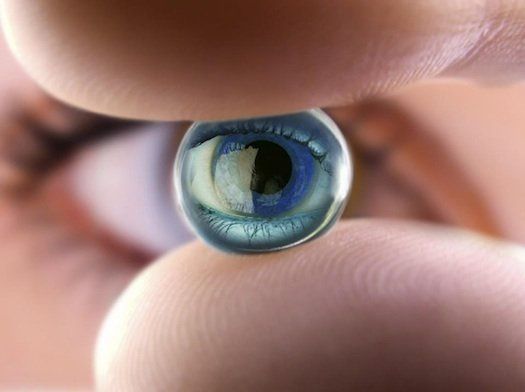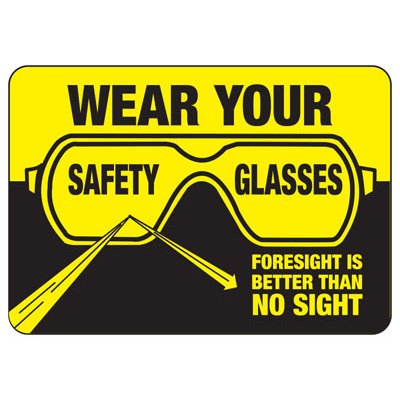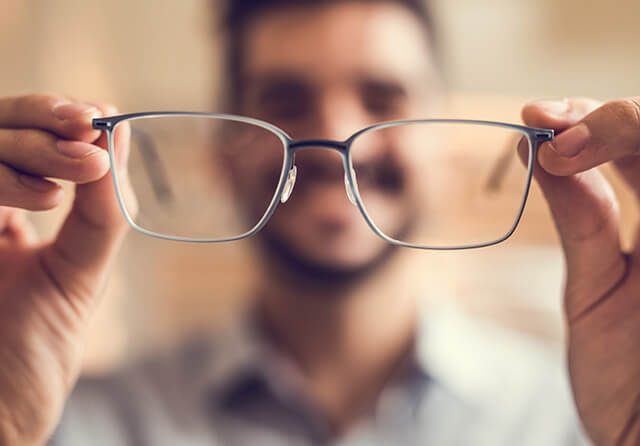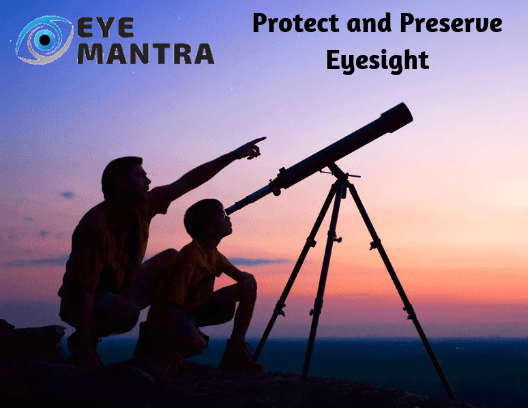Eyesight is considered one of the most essential senses that play an important role in our lives. Ensuring good eye health is the best way to keep them functioning throughout the lifetime. Adopting good lifestyle practices and undertaking certain protective measures can safeguard your eyesight.
In general, the best thing you can do to maintain your 6 by 6 vision for the long term is to incorporate positive lifestyle practices and good eye care habits, which include eating healthy, avoiding smoking, regular exercise, increasing consumption of fruits and green veggies, especially leafy vegetables. They are rich in antioxidants that help counter the harm that occurs throughout our bodies with age. Perform regular exercise and prevent yourself from lifestyle diseases! Whether it is obesity, diabetes, or high blood pressure. Whatever is good for your body will benefit your eyes, too.
Moreover, these authentic tips to save your vision are curated by a top ophthalmologist of our best eye hospital in Ghaziabad.
10 Tips to save your 6 by 6 Vision

As per various research and studies in India, almost half of India’s population is estimated to be suffering from eyesight problems and correction. And the worst part is, 75% of these are cases of avoidable blindness. While not all eye diseases can be prevented, still, with a little effort and lifestyle changes, we can keep our eyes healthy now and reduce the chances of vision loss in the future.
Here are the tips you can use to safeguard your eyes and 6 by 6 vision.
1) Eat Right

The kind of food we eat plays an important role in improving our eye health. Therefore, to ensure both your body’s as well as your eye’s health, make sure you eat healthy food.
You need to include the food items mentioned below in your diet and ensure to get the optimal recommended daily dose of nutrients and vitamins.
- Fresh fruits and vegetables,
- Green leafy vegetables, such as spinach,
- Bright and Dark-colored fruits (red and blue), especially berries,
- Oranges, Guavas, grapefruit, and other citrus fruits,
- Nuts, seeds, and dry fruits. Such as almonds, flaxseed, and walnuts,
- Protein-rich food items. For example, dals (lentils)- especially Soya, milk, and milk products, beans,
- If you are a non-vegetarian, you may also take eggs, Salmon, tuna, or other oily fish, oysters, and pork.
Insufficient vitamins in your diet can impair retinal function. According to the studies, eating raw carrots helps to improves vision. The importance of vitamin A for healthy eyes, especially in children, cannot be overemphasized.
However, this might not be enough to ensure good vision. One need to enhance nutrients intake in the form of vegetables, especially leafy green ones.
Research proves that people on diet with higher levels of vitamins C and E, zinc, lutein, zeaxanthin, omega-3 fatty acids DHA and EPA are less likely to develop early and advanced Age-Related Macular Degeneration (AMD) and are able to avoid Cataract Surgery.
In addition to this, it also help in maintaining the ocular surface.
Moreover, a well-balanced diet will also help you keep your weight on track. These practices helps you to stay safe from diabetes and lipid disorders, both of which are known to harm your 6 by 6 vision. These are the leading causes of blindness in adults other than morbidity.
2) Visit Your Eye Doctor Regularly

Everyone should get an eye exam regularly, whether there are young children or the 80+ elderly.
A thorough eye exam at a good eye hospital Delhi, including dilating your pupils, can ascertain your risk for major eye diseases such as diabetic retinopathy, which does not show any early symptoms or warning signs. Even glaucoma does not show early symptoms.
Adults with no symptoms or risk factors for eye diseases must get a baseline eye disease screening at age of 40 years or at the time when early signs and/or changes in vision may start to occur. The optometrist will specify intervals for follow-up exams, based on the results of the initial screening. Anyone with symptoms or a family history of eye disease, diabetes or high blood pressure should see an eye specialist to determine how frequently he should get his eyes examined.
An eye exam would also ensure that your prescription for eyeglasses or contact lenses is still valid and your 6 by 6 vision is safe and clear.
A complete eye exam might include:
- Talking about you and your family’s medical history,
- Get vision tests to check if you’re nearsighted, farsighted, have astigmatism (a curved cornea that blurs vision), or presbyopia (age-related vision changes),
- Tests to see how well your eyes focus together,
- Eye pressure and optic nerve tests to identify early signs of glaucoma,
- It helps to ensure if you have, or have a higher risk for eye diseases. It is especially useful for diseases like glaucoma which have no symptoms until the later stages,
- External and microscopic examination of the eyes before and after dilation.
- Any disease can be picked up in the early stages. Prevention is always better than cure and will help preserve your vision.
- The doctor will be able to set a baseline for your eye condition, especially for your anterior chamber depth, optic nerve status, and macular health. For all further examinations, any deviations from baseline will get picked up fast, helping in better disease management.
Also, you are advised to get complete physical exams regularly. This will check for symptoms of diabetes, cholesterol, and high blood pressure. If these are not detected in time, these diseases can cause severe eye problems, in addition to the various other general health issues.
3) Wear Sunglasses

When you need to venture outdoors during the daytime, always wear sunglasses that shield your eyes 100 % from the sun’s harmful ultraviolet rays. Make sure your sunglasses block both UV-A rays and UV-B rays. This may help reduce your risk of cataracts, pinguecula, macular degeneration, and other eye problems.
Sunglasses that block UV rays delay the development and prevent cataract, while exposure to direct sunlight hastens their formation. Sunglasses prevent retinal damage by protecting the delicate eyelid skin. It not only prevents wrinkles, but also helps avoid skin cancer around the eye, and both cancerous and non-cancerous growths. Wraparound glasses will help protect your eyes from the sides too. Polarized lenses helps to reduce glare at the time of driving.
4) Stop and Avoid Smoking

There are various risks associated with smoking. When it comes to eye health, people who smoke are at a greater risk of developing age-related macular degeneration (AMD), cataracts, uveitis, or other eye problems.
It can make your optic nerve to get more prone to damages. If you’ve tried to kick the habit before, however started again, then keep trying repetitively until you are free from the habit. The more you try to quit, the more likely you are to achieve success. You should also consult an eye doctor for help.
It makes your body dehydrated and can have several effects that are far more serious on your lungs. All doctors advise you to quit smoking because tobacco and tar products decrease the excellent free radical scavengers in your body, making it prone to catch various diseases.
5) Protect your Eyes

If you use hazardous materials such as chemicals or airborne objects, on the job or at home, wear safety goggles or protective glasses. In case you use devices that may be a fire hazard or handle fireworks, make sure your eyes are sufficiently protected.
It is crucial to wear proper eye protection to prevent injuries during home repairs, gardening, and cleaning.
Also, protect your eyes during sports such as hockey and baseball, etc. These can also lead to an eye injury. Helmets with protective face masks or sports goggles with polycarbonate lenses will shield your 6 by 6 vision.
6) Care for your Lenses

Daily cleaning of your eyeglasses is the best way to keep free from scratches and other eyewear damage. Protecting the lens coatings can enhance the durability, performance, and appearance of your eyeglass lenses. This is true whether you wear single vision or bifocal lenses.
Do not use any cloth, paper towels, napkins, tissues or toilet paper to clean your glasses, especially when the lenses are dry. Some people use saliva to wet the lenses and clean, but that is a very wrong way to do so.
For smart cleaning and proper care of your glasses, try individually packaged, pre-moistened disposable lens cleaning wipes. These are formulated specifically for cleaning eyeglass lenses.
7) Don’t Strain your Eyes

If you have eye strain from looking continuously at a computer or doing some close work, you should follow the 20-20-20 rule. Look away from your work every 20 minutes at an object around 20 feet away for 20 seconds.
Such strains can cause several eye problems including:
- Eyestrain and headaches,
- Dry eyes and computer vision syndrome,
- Blurred vision and convergence insufficiency.
You may also like: Convergence Exercises: Symptoms of Insufficiency & Treatment
To minimize the ill effects of strain on your eyes and safeguard your 6 by 6 vision, you can also follow the below guidelines:
- Make sure you wear your glasses while working, and the power of your glasses or contact lenses is appropriate for your 6 by 6 vision.
- Blink your eyes to prevent excessive dryness. You may try over the counter preservative-free; lubricating eye drops to ensure visual comfort.
- Avoid glare from direct light sources.
- Increase the font size in the system so you won’t have to sit too close to it. Adjust screen brightness for maximum comfort.
If the strain sill persists, it can be a sign of different conditions including dry eye, presbyopia, or spectacles with lenses that are not properly centered. Visit the eye hospital Delhi to determine why you have vision strain and to get proper advice and treatment. Here you can submit your queries about eye health.
8) Know your Family History

Many diseases are hereditary or of genetic nature. The same is true for eye diseases. They cluster in families. So you should know and keep a record of your family’s history of diseases because you may be at increased risk. Age-related eye diseases, including cataract surgeries, diabetic retinopathy, glaucoma, and age-related macular degeneration are expected to dramatically increase in the event if your ancestors had the same problems of vision.
9) Be aware of the warning signs

If you start noticing any changes in your 6 by 6 vision or your eyesight, visit your doctor immediately. Some signs to look for are double vision, hazy vision and difficulty seeing in low light conditions. Keeping yourself aware of the latest updates in vision care is also a way to ensure you avoid eye diseases from occurring.
Other symptoms and signs of potentially serious eye problems that ask for immediate attention include red eyes, frequent flashes of light, floaters, and eye pain and swelling.
10) Know your Doctor

When and where you go to get your eyes checked, matters a lot. There are various hospitals, you might visit the best eye hospital Delhi. Ophthalmologists, optometrists, and opticians all play an important role in providing vision care services to consumers. However, all have a different level of training and expertise. Make sure you consult the best and the most efficient one for your condition or treatment. A good ophthalmologist is specially trained to provide the full spectrum of eye care, from prescribing glasses and contact lenses to complex and delicate eye surgery.
The best way to preserve your 6 by 6 vision is to visit your eye care professional and get your eyes checked regularly. She will be able to advise the best care by adding tears, conserving tears, increasing tear production, and treating the inflammation of the eyelids or eye surface that may contribute to the dry eyes.
And the best way is to visit our website Eyemantra.
To book an appointment call at +91-8851044355. Or mail us at [email protected].
Our other services include Retina Surgery, Specs Removal, Cataract Surgery, and many more.
Related Articles:
Do’s and Dont’s for protecting your eyes while playing holi



